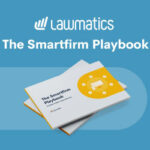
‘Trump Too Small’ Is Big Enough For SCOTUS Review

(Photo by MANDEL NGAN/AFP/Getty Images)
What initially began as a feud between former president Donald Trump and Sen. Marco Rubio about their heights and hand sizes has evolved into a Supreme Court case with far-reaching implications for trademark law. On November 1, the Supreme Court heard oral arguments regarding whether an individual can own a federal trademark covering the phrase “Trump Too Small.” Central to the debate is whether the U.S. Patent and Trademark Office’s application of a statutory ban on trademark registrations referencing living individuals without their consent violates the First Amendment. During the oral argument, the Supreme Court justices signaled a likely consensus that there is no First Amendment violation.
googletag.cmd.push( function() { // Display ad. googletag.display( "div-id-for-top-300x250" ); });During their campaigns for the 2016 Republican presidential nomination, Trump and Rubio engaged in debates over their policy differences, critiqued each other’s personal character, and even resorted to name calling. In response to Trump calling him “little Marco,” Rubio stated, “Have you seen his hands? They’re like this,” as he demonstrated with a gesture to suggest small size. Rubio continued, “And you know what they say about men with small hands — you can’t trust them.” Trump responded during a Republican primary debate asking, “Look at those hands. Are they small hands? … If they’re small something else must be small. I guarantee you, there’s no problem. I guarantee it.”
 Sponsored How Generative AI Is Disrupting Law Firm Billing Practices Amid legal landscape shifts, billing practices remain vital. With generative AI enabling faster, more efficient work, some law firms may adjust billing models accordingly. From LexisNexis
Sponsored How Generative AI Is Disrupting Law Firm Billing Practices Amid legal landscape shifts, billing practices remain vital. With generative AI enabling faster, more efficient work, some law firms may adjust billing models accordingly. From LexisNexis Referencing this exchange, Steve Elster submitted a trademark application for “Trump Too Small” for use on T-shirts and other apparel. The Trademark Trial and Appeal Board rejected Elster’s application based on 15 U.S.C. 1052(c), a federal statute prohibiting the registration of a trademark with a living person’s name without that individual’s consent. However, the Federal Circuit reversed and ruled in favor of Elster, finding that the statute’s bar to registration is a content-based speech restriction subject to heightened scrutiny. The court held that, as applied to a mark that criticizes a public figure, the statute violates the First Amendment.
The case, Vidal v. Elster, is currently under consideration by the U.S. Supreme Court. The objective of the parties during the November 1 oral argument was to persuade the Supreme Court on how to characterize the trademark registration system for the purposes of First Amendment analysis and determine the appropriate level of scrutiny to be applied.
googletag.cmd.push( function() { // Display ad. googletag.display( "div-id-for-middle-300x250" ); }); googletag.cmd.push( function() { // Display ad. googletag.display( "div-id-for-storycontent-440x100" ); }); googletag.cmd.push( function() { // Display ad. googletag.display( "div-id-for-in-story-youtube-1x1" ); });Counsel for the United States, Malcolm Stewart, initiated the oral argument by asserting that the restriction on Elster’s trademark registration is consistent with the First Amendment. He argued that the restriction constitutes a condition on a federal benefit rather than a limitation on speech, subjecting it to a mere “reasonableness” standard. Stewart pointed out that although Elster cannot register “Trump Too Small,” he retains the right to sell shirts featuring that slogan. Moreover, he can still enjoy the benefits of a federal trademark registration for his shirts by selecting an alternative source identifier that does not reference another individual’s name without consent. Stewart emphasized that Elster is solely losing the exclusive right to claim ownership of another person’s name.
While many of the justices agreed that speech is not being restricted in this case, some feared that characterizing this case as one concerning government benefits will open a can of worms. Justice Alito stated that the extent of the government’s ability to attach conditions to a benefit “is a very difficult area of constitutional law, and potentially a quite dangerous one.” Instead, he suggested that Stewart look at whether historical evidence comports with this being a First Amendment liberty.
Sponsored Sponsored LawPay Pro Offers Upgraded Time And Billing Essentials AffiniPay’s latest product for the legal community, introduced earlier this year, presents a simple web-based solution for attorneys seeking seamless firm cash flow. From Above the Law
Sponsored LawPay Pro Offers Upgraded Time And Billing Essentials AffiniPay’s latest product for the legal community, introduced earlier this year, presents a simple web-based solution for attorneys seeking seamless firm cash flow. From Above the Law  Sponsored InterAction+ Brings Power Of CRM Software To Law Firms Of All Sizes The only legal CRM with exclusive content from LexisNexis®. From LexisNexis® InterAction+™
Sponsored InterAction+ Brings Power Of CRM Software To Law Firms Of All Sizes The only legal CRM with exclusive content from LexisNexis®. From LexisNexis® InterAction+™  Sponsored How Generative AI Is Disrupting Law Firm Billing Practices Amid legal landscape shifts, billing practices remain vital. With generative AI enabling faster, more efficient work, some law firms may adjust billing models accordingly. From LexisNexis
Sponsored How Generative AI Is Disrupting Law Firm Billing Practices Amid legal landscape shifts, billing practices remain vital. With generative AI enabling faster, more efficient work, some law firms may adjust billing models accordingly. From LexisNexis  Sponsored LawPay Pro Offers Upgraded Time And Billing Essentials AffiniPay’s latest product for the legal community, introduced earlier this year, presents a simple web-based solution for attorneys seeking seamless firm cash flow. From Above the Law
Sponsored LawPay Pro Offers Upgraded Time And Billing Essentials AffiniPay’s latest product for the legal community, introduced earlier this year, presents a simple web-based solution for attorneys seeking seamless firm cash flow. From Above the Law Justice Kavanaugh proposed that trademark registration might be akin to a “limited public forum.” A “limited public forum” exists where the government has intentionally reserved a forum only for certain groups or for the discussion of certain topics. The government may restrict speech in such a forum so long as the restrictions are viewpoint neutral and reasonable in light of the purpose served by the forum. Stewart argued that the restriction on registration is viewpoint neutral because it bans registration of a mark that refers to an identified individual if that individual has not consented, regardless of the message.
In a further effort by the Supreme Court to bolster the government’s argument, Justice Sotomayor expressed her view that the court does not necessarily need to delve into a First Amendment analysis or a government benefits analysis. She opined that her colleagues are complicating this case by being “straight-jacketed by labels instead of looking at this … from first principles.” According to Justice Sotomayor, “[t]he question is, is this an infringement on speech? And the answer is no.” She reasoned that Elster “can sell as many shirts with this saying, and the government’s not telling him he can’t use the phrase, he can’t sell it anywhere he wants.” Emphasizing that all government action requires a rational basis, she asserted that this should be the applicable standard, and there is certainly a rational basis for the government’s actions.
While the justices seemed to disagree on what level of scrutiny should apply, Stewart argued that even if a heightened level were to apply, this ban on registration would still satisfy such scrutiny. First, Stewart reasoned there exists a robust rationale for denying exclusive rights to others in another person’s name, grounded in a historical tradition where individuals have been able to control the commercial exploitation of their own name. Second, Stewart contended that First Amendment interests support this statutory restriction, as it prevents individuals like Elster from gaining an increased ability to block competitors from using the same slogan. Stewart emphasized that granting registration would consequently diminish the overall volume of political speech.
googletag.cmd.push( function() { // Display ad. googletag.display( "div-id-for-bottom-300x250" ); });Jonathan Taylor, representing Elster, argued that the statutory ban on registration should undergo heightened scrutiny primarily because it constitutes a content-based withholding of generally available legal protections, imposing a substantial burden on speech.
From the onset of his argument, the justices scrutinized Taylor’s position. Justice Thomas pressed him to specify the speech being burdened, alluding to the distinction between the ability to express oneself and the capacity to register that expression in some form. Subsequently, Justice Sotomayor accused him of conceding the opposing side’s argument that this case involves a government benefit. Justice Kagan then emphasized that in every government benefits case, the Supreme Court has held that as long as the decision is not viewpoint-based, the government can provide the benefit to some and not to others.
Sponsored Sponsored The Smartfirm Playbook - Thriving In Today’s Legal Landscape Strategically using software and automation to boost efficiency and streamline operations, allowing for a laser-focus on practicing law. From Lawmatics
Sponsored The Smartfirm Playbook - Thriving In Today’s Legal Landscape Strategically using software and automation to boost efficiency and streamline operations, allowing for a laser-focus on practicing law. From Lawmatics  Sponsored How to Achieve Quicker, More Valuable Case Settlements with Minimal Effort: A Guide for Personal Injury Lawyers We’re pleased to share the “Top 5 Things Carriers Are Looking for in Demands” — a guide authored by a lawyer with deep experience on… From EvenUp and Above The Law
Sponsored How to Achieve Quicker, More Valuable Case Settlements with Minimal Effort: A Guide for Personal Injury Lawyers We’re pleased to share the “Top 5 Things Carriers Are Looking for in Demands” — a guide authored by a lawyer with deep experience on… From EvenUp and Above The Law Taylor argued that by enforcing the statute that denies Elster registration, the government is engaging in viewpoint discrimination. This would permit Trump to express positive views of himself but restricts anyone else from expressing their perspective unless they obtain consent. Elster’s brief highlights the disparity, pointing out that the USPTO registered an authorized “Hillary for America” by Clinton but rejected registration for a nonauthorized “Hillary for Prison” mark. The Supreme Court was skeptical that there was any viewpoint discrimination. Justice Jackson noted that there was little to no evidence that the bar was being used in a viewpoint discriminatory fashion by the USPTO.
Additionally, Taylor argued that heightened scrutiny is warranted because the statute’s purpose, aiming to prevent hurt feelings of public figures, is unrelated to the core purpose of trademark law, which is to prevent false association and the registration of marks likely to confuse or mislead. Taylor noted that if the “limited public forum” doctrine applies, there must be a nexus between restriction on speech and the purpose served by the forum. The justices strongly asserted that such a nexus did exist. Justice Jackson underscored that trademark law is not about expression and speech; rather, it is about source identification and preventing confusion. There is a clear nexus to this purpose, as by preventing the trademarking of living persons’ names, the government is advancing the interests of the trademark system by averting confusion about whether the product is endorsed by the person.
Justice Gorsuch further emphasized that common law has a “long and robust history about restricting names.” He continued, “at the end of the day, it’s pretty hard to argue that a tradition that’s been around a long, long time, since the founding, you know, common law type stuff, is inconsistent with the First Amendment.”
Lastly, several justices agreed with the government that allowing Elster to register the “Trump Too Small” slogan may hinder First Amendment interests. They expressed concern that registration of the mark could impede others’ equal access to making such comments about Trump. This underscores the notion that slogans like this do not function as source identifiers, and thus should not be eligible for trademark registration.
In recent years, the Supreme Court has struck down two trademark laws for concerns over free speech. In Tam, the court found that a provision that banned “disparaging” trademarks is unconstitutional, allowing the Asian American band The Slants to trademark their name. In Brunetti, the court held that a ban on “immoral” or “scandalous” trademarks is unconstitutional, allowing a brand to trademark “FUCT.” The Supreme Court did not reach a consensus on how to apply the First Amendment to trademark registration. This begs the question: will the Supreme Court finally write an opinion broad enough to implicate how the First Amendment applies to trademark registration?
Irrespective of the route taken, the justices seem inclined to deviate from their positions in Tam and Brunetti, leaning towards the view that this ban on registration does not constitute a First Amendment violation.
Nicolette Shamsian joined Above the Law as a fashion law columnist in 2023. Nicolette earned her B.A., summa cum laude, in Political Science and minor in Entrepreneurship from the University of California, Los Angeles and her Juris Doctor from UCLA School of Law. Nicolette is an attorney whose work focuses on intellectual property litigation. As a fashion law aficionado, Nicolette enjoys leading discussions to keep attorneys up to date on noteworthy fashion law cases.
TopicsCourts, Donald Trump, Fashion, Fashion Law, Intellectual Property, Nicolette Shamsian, Steve Elster, Trademarks
Introducing Jobbguru: Your Gateway to Career Success
The ultimate job platform is designed to connect job seekers with their dream career opportunities. Whether you're a recent graduate, a seasoned professional, or someone seeking a career change, Jobbguru provides you with the tools and resources to navigate the job market with ease.
Take the next step in your career with Jobbguru:
Don't let the perfect job opportunity pass you by. Join Jobbguru today and unlock a world of career possibilities. Start your journey towards professional success and discover your dream job with Jobbguru.
Originally posted on: https://abovethelaw.com/2023/12/trump-too-small-is-big-enough-for-scotus-review/